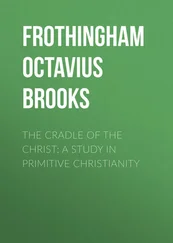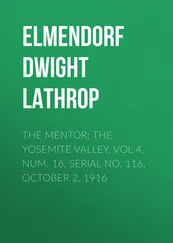Anne Blunt - A Pilgrimage to Nejd, the Cradle of the Arab Race. Vol. 1 [of 2]
Здесь есть возможность читать онлайн «Anne Blunt - A Pilgrimage to Nejd, the Cradle of the Arab Race. Vol. 1 [of 2]» — ознакомительный отрывок электронной книги совершенно бесплатно, а после прочтения отрывка купить полную версию. В некоторых случаях можно слушать аудио, скачать через торрент в формате fb2 и присутствует краткое содержание. Жанр: foreign_antique, foreign_prose, Путешествия и география, на английском языке. Описание произведения, (предисловие) а так же отзывы посетителей доступны на портале библиотеки ЛибКат.
- Название:A Pilgrimage to Nejd, the Cradle of the Arab Race. Vol. 1 [of 2]
- Автор:
- Жанр:
- Год:неизвестен
- ISBN:нет данных
- Рейтинг книги:4 / 5. Голосов: 1
-
Избранное:Добавить в избранное
- Отзывы:
-
Ваша оценка:
- 80
- 1
- 2
- 3
- 4
- 5
A Pilgrimage to Nejd, the Cradle of the Arab Race. Vol. 1 [of 2]: краткое содержание, описание и аннотация
Предлагаем к чтению аннотацию, описание, краткое содержание или предисловие (зависит от того, что написал сам автор книги «A Pilgrimage to Nejd, the Cradle of the Arab Race. Vol. 1 [of 2]»). Если вы не нашли необходимую информацию о книге — напишите в комментариях, мы постараемся отыскать её.
A Pilgrimage to Nejd, the Cradle of the Arab Race. Vol. 1 [of 2] — читать онлайн ознакомительный отрывок
Ниже представлен текст книги, разбитый по страницам. Система сохранения места последней прочитанной страницы, позволяет с удобством читать онлайн бесплатно книгу «A Pilgrimage to Nejd, the Cradle of the Arab Race. Vol. 1 [of 2]», без необходимости каждый раз заново искать на чём Вы остановились. Поставьте закладку, и сможете в любой момент перейти на страницу, на которой закончили чтение.
Интервал:
Закладка:
Mohammed Dukhi ibn Smeyr is the greatest personage in the north-western desert next to Ibn Shaalan, and as I have said before was at that time hotly engaged in a war with the Roala chief. His object in visiting Damascus was as follows: in the course of the autumn a detachment of fifteen Turkish soldiers attacked his camp without provocation and, firing into it, killed a woman and a child. This camp numbered only a few tents, the tribe being at the time scattered on account of pasturage, and the Sheykh himself was absent with most of the men. Those, however, who had remained at home managed to cut off and surround the soldiers, one of whom was killed in the fray. The Welled Ali would have killed the rest but for Mohammed Dukhi’s wife, Herba, 5who rushed in among the combatants, and remonstrated with her people on the folly of involving themselves in a quarrel with the Government. Her pluck saved the soldiers’ lives. She took them under her protection, and the next morning sent them under escort to a place of safety.
Now Mohammed Dukhi, having the Roala war on his hands and being obliged to shelter himself from Ibn Shaalan under the walls of Jerúd, was naturally anxious to clear up this matter of the soldier’s death; and, directly he heard of Midhat’s arrival at Damascus, he shrewdly determined to make his count with the new Pasha by an early call at the Serai. Ibn Shaalan was out of the way, and the first comer would doubtless be the one most readily listened to. Ibn Smeyr had besides a little intrigue on foot respecting the escort of the Damascus pilgrims, which he in part provided or hoped to provide. Abd el-Kader was his friend, and it was at the Emir’s house that he alighted and that we found him. Mohammed Dukhi, noble though he is in point of blood, is not a fine specimen of a great Bedouin Sheykh. His politeness is overstrained and unnatural, reminding one rather of city than of desert manners; there are also ugly stories of his want of faith, which one finds no difficulty in believing when one sees him. He affected, however, great pleasure at seeing us again, and professed an entire devotion to our welfare and our plans. He would himself accompany us on the first stages of our road, or at least send his sons or some of his men; offers which dwindled, till at last they resulted in his merely writing some letters of recommendation for us, and giving us a large amount of good advice. As regards the latter, he informed us that a journey such as we proposed outside the Hauran would not at the present moment be practicable. No rain had fallen during the autumn, and the Hamád was without water; indeed, except in the Wady Sirhán, where the wells were never dry, there was no watering place southwards at any distance from the hills. He advised us, therefore, to leave Damascus by the pilgrim road, which keeps inside the Hauran, and follow it till we came across the Beni Sokkhr, whom we should find encamped not far to the east of it. There was besides a capital opportunity for us of doing this in company with the Jerdeh , now on the point of starting for Mezárib, a station on the Haj road. The Jerdeh, he explained, for the name was new to us, are a kind of relief party sent every year from Damascus, to meet the pilgrims on their homeward route, carrying with them supplies of all the necessaries of life, provisions, and extra camels to replace those broken down. The party is escorted by Mohammed Dukhi, or rather by his men, and the idea of joining them seemed exactly suited to our purpose; though when we came to put it in practice, it turned out to be of as little value as the rest of the smooth-spoken Sheykh’s offers. It was something, however, to have a plan, good or bad, and letters from so great a man as Ibn Smeyr were of value, even though addressed to the wrong people.
Accordingly, on the 12th we bade good-bye to our Damascus friends, wrote our last letters to our friends in England, and said a long farewell to the pleasures and pains of European life. On the 13th we started.
December 13. – We have started at last, and on a Friday, the 13th of the month. I have no personal objection to any particular day of the week, or of the month. But, as a matter of fact, the only seriously unfortunate journey we ever made was begun on a Friday, and Wilfrid professes himself to be superstitious and full of dark foreboding. He, however, insisted on starting this Friday, and with some inconsistency argues that forebodings are lucky, or that at any rate the absence of them is unlucky, and that it would not be safe to begin a journey in a cheerful frame of mind.
We were roused in the middle of the night by a cry of thieves in the garden, and running out of our tent found a scuffle going on, which, when lights were brought, proved to have been caused by two men, one the keeper of the garden and the other a soldier, whom he was taking prisoner. Our servants were standing round them, and Hanna, seeing the man to be securely bound, was belabouring him with a stick, ejaculating at intervals, “O robber, O dog, O pig! O pig, O dog, O robber!” The story told us was that the gardener had found this man prowling about, and had, after a terrible engagement, succeeded in his capture. There were, however, no blood or wounds to show; and, the evidence of the prisoner’s wicked designs not being very overwhelming, Wilfrid gave orders that he should be let go as soon as it should be daylight. In the first place, any handing over of the man to justice would have delayed our start, and secondly, it was more than probable that the whole thing had been got up by the gardener with the accused person for the sake of the present the two would receive. Such little comedies are quite common in the East; and when we declined to take it seriously, the two men very good-humouredly let the matter drop.
At the first streak of dawn we struck our tents, loaded our camels, and a little after sunrise were on our mares and well away from the town in marching order for Nejd! At first we skirted the city, passing the gate where St. Paul is said to have entered, and the place where he got over the wall, and then along the suburb of Maidan, which is the quarter occupied by Bedouins when they come to town, and where we had found the Tudmuri and our camels. Here we were to have met the Jerdeh, and we waited some time outside the Bawábat Allah, or “Gates of God,” while Mohammed went in to make inquiries, and take leave of his Tudmuri friends. It is in front of this gate that the pilgrims assemble on the day of their start for Mecca, and from it the Haj road leads away in a nearly straight line southwards. The Haj road is to be our route as far as Mezárib, and is a broad, well worn track, though of course not a road at all according to English ideas. It has, nevertheless, a sort of romantic interest, one cannot help feeling, going as it does so far and through such desolate lands, a track so many thousand travellers have followed never to return. I suppose in its long history a grave may have been dug for every yard of its course from Damascus to Medina, for, especially on the return journey, there are constantly deaths among the pilgrims from weariness and insufficient food.
Our caravan, waiting at the gate, presented a very picturesque appearance. Each of the delúls carries a gay pair of saddle-bags in carpet-work, with long worsted tassels hanging down on each side half way to the ground; and they have ornamented reshmehs or headstalls to match. The camels, too, though less decorated, have a gay look; and Wilfrid on the chestnut mare ridden in a halter wants nothing but a long lance to make him a complete Bedouin. The rest of our party consists, besides Mohammed and Hanna, who have each of them a delúl to ride, of Mohammed’s “cousin” Abdallah, whom we call Sheykh of the camels, with his two Agheyl assistants, Awwad, a negro, and a nice-looking boy named Abd er-Rahman. These, with Mohammed, occupy one of the servants’ tents, while Hanna and his “brother” Ibrahim have another, for even in the desert distinctions of religious caste will have to be preserved. It is a great advantage in travelling that the servants should be as much as possible strangers to each other, and of different race or creed, as this prevents any combination among them for mutiny or disobedience. The Agheyls will be one clique, the Tudmuri another, and the Christians a third, so that though they may quarrel with one another, they are never likely to unite against us. Not that there is any prospect of difficulty from such a cause; but three months is a long period for a journey, and everything must be thought of beforehand.
Читать дальшеИнтервал:
Закладка:
Похожие книги на «A Pilgrimage to Nejd, the Cradle of the Arab Race. Vol. 1 [of 2]»
Представляем Вашему вниманию похожие книги на «A Pilgrimage to Nejd, the Cradle of the Arab Race. Vol. 1 [of 2]» списком для выбора. Мы отобрали схожую по названию и смыслу литературу в надежде предоставить читателям больше вариантов отыскать новые, интересные, ещё непрочитанные произведения.
Обсуждение, отзывы о книге «A Pilgrimage to Nejd, the Cradle of the Arab Race. Vol. 1 [of 2]» и просто собственные мнения читателей. Оставьте ваши комментарии, напишите, что Вы думаете о произведении, его смысле или главных героях. Укажите что конкретно понравилось, а что нет, и почему Вы так считаете.
![Anne Blunt A Pilgrimage to Nejd, the Cradle of the Arab Race. Vol. 1 [of 2] обложка книги](/books/749489/anne-blunt-a-pilgrimage-to-nejd-the-cradle-of-the-cover.webp)











